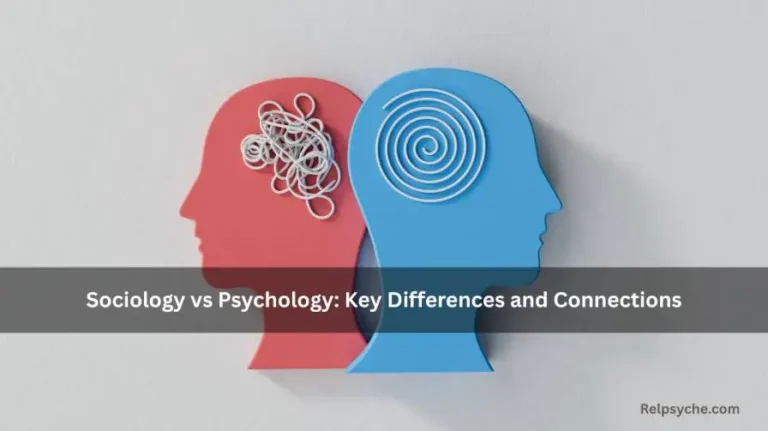What Is Thought Fog? A Frustrating Brain Problem
What is thought fog? Thought fog is when your brain feels cloudy, tired, or not sharp. It’s like trying to think through thick fog. You might feel confused, slow, or forgetful. It’s hard to focus, remember things, or finish tasks.
People also call it “brain fog.” But no matter what you call it, it’s not fun.
Thought fog isn’t a disease. It’s a symptom — a sign that your brain is tired, stressed, or needs help. Everyone feels it sometimes, especially when they’re not sleeping well, eating poorly, or feeling stressed.
Table of Contents
How Does Thought Fog Feel?
You may be dealing with thought fog if:
- You forget simple things often
- You find it hard to pay attention
- You feel sleepy or tired all day
- You have trouble making decisions
- You feel like your brain is “stuck”
- You don’t feel excited or motivated
Imagine trying to read a book, but the pages are blurry. That’s what thought fog feels like inside your brain.
Causes of Thought Fog
Let’s look at what causes this cloudy feeling in your head. Here are the most common reasons:
1. Lack of Sleep
When you don’t sleep enough, your brain doesn’t get to rest and repair. Sleep helps your brain store memories and clear out stress. Without it, you feel foggy.
2. Too Much Stress
Worrying a lot or feeling anxious can make your brain feel tired. Stress uses up your energy and makes it harder to think clearly.
3. Poor Diet
Eating too much sugar or junk food, or skipping meals, can slow your brain. Your brain needs fuel — like fruits, veggies, and water — to work well.
4. Not Enough Water
Dehydration makes it hard for your brain to focus. Even being a little thirsty can cause thought fog.
5. Sitting All Day
If you don’t move your body, blood flow to your brain slows down. That can make your thoughts slower too.
6. Too Much Screen Time
Too many hours on your phone or computer can tire your eyes and brain. Taking breaks helps reduce brain fog.
7. Medical Conditions
Sometimes thought fog is linked to conditions like:
- Anxiety
- Depression
- ADHD
- Thyroid problems
- Long COVID
If it lasts for weeks, talk to a doctor.
How to Clear Thought Fog
Now that you know what is thought fog, let’s look at ways to clear it. These simple tips really help:
1. Sleep 7–9 Hours Every Night
Go to bed and wake up at the same time every day. Sleep is like a reset button for your brain.
2. Eat Brain-Boosting Foods
Eat things like eggs, nuts, berries, leafy greens, and fish. They help your brain stay sharp.
3. Drink Plenty of Water
Aim for 6–8 glasses a day. Keep a water bottle nearby.
4. Move Every Day
Take walks, dance, do stretches — just move! Exercise helps blood flow to your brain and clears the fog.
5. Write Notes
When you’re foggy, write things down. Use sticky notes, reminders, or apps to keep track.
6. Take Screen Breaks
Follow the 20–20–20 rule: Every 20 minutes, look at something 20 feet away for 20 seconds.
7. Relax Your Mind
Try breathing exercises, meditation, or just sit in silence for 5 minutes. Calm minds think better.
8. Talk About It
Tell someone you trust how you feel. Talking helps you release stress.
Real-Life Example
Imagine Sarah, a student. She was always tired, couldn’t focus in class, and forgot her homework. She had thought fog. After sleeping better, drinking more water, and taking phone breaks, she started feeling better. Her grades went up, and she felt happy again.
You can feel better too — one small step at a time.

Conclusion
So, what is thought fog? It’s when your brain feels slow, tired, or unclear. It can come from lack of sleep, stress, poor eating, and too much screen time. But the good news is, you can fix it!
Start small: sleep more, eat healthy, move your body, and drink water. These steps can clear the fog and help your brain feel sharp again.
For personalized support on your journey to self-improvement, explore therapy options at psychologyorg.
If you want to read more articles similar to What is thought fog? What You Need to Know we recommend that you enter our psychology category.
FAQs
Q1: What is thought fog a sign of?
It can be a sign of stress, bad sleep, or poor diet. Sometimes it’s linked to health problems like anxiety.
Q2: How long does thought fog last?
It can last a few hours or days. With healthy habits, it often goes away quickly.
Q3: Is thought fog serious?
It’s usually not dangerous, but if it lasts a long time, talk to a doctor.
Q4: Can kids or teens get thought fog?
Yes! Anyone can feel it, especially during exams or stressful times.
Q5: Can exercise really help thought fog?
Yes! Moving boosts brain power. Even a short walk helps.

I’m Emma Johnson, a psychologist who loves to write and share ideas.
I enjoy making psychology simple so everyone can understand and use it in daily life.
If you’d like to talk, ask questions, or work together, feel free to reach out.
Let’s learn and grow in the world of psychology together!







